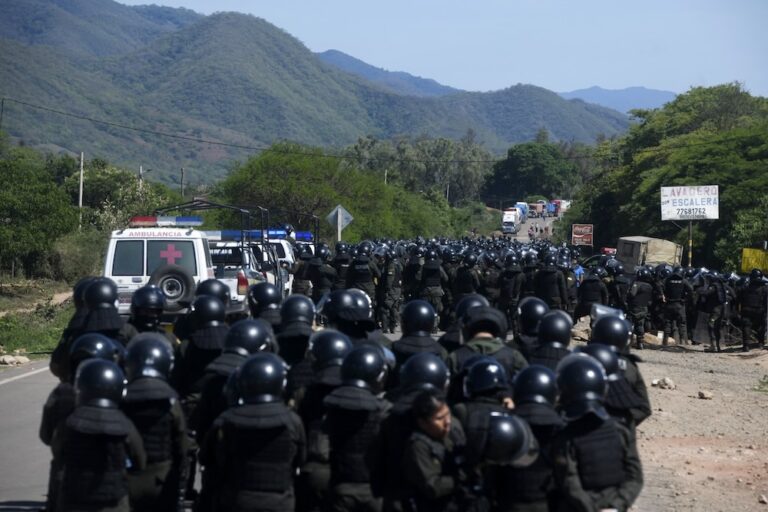According to the group, Articles 16 and 23 of the new law contravene freedom of expression principles.
(IPYS/IFEX) – 13 October 2010 – The Andean Group for Freedom of Information (GALI), which is overseen by the Ecuadorian organization Fundamedios, delivered a letter addressed to Bolivian President Evo Morales on the occasion of his visit to Quito. In the letter, GALI condemned the inclusion of articles 16 and 23 in the Law against Racism and All Forms Discrimination, which was approved on 8 October by Bolivia’s Senate. The group also announced its solidarity with the protest being carried out by its partner, the Bolivian National Press Association (ANP), as well as that of Bolivia’s journalists, who are fighting courageously against this legislation that threatens the press.
GALI is a consortium of organisations that defend freedom of information and is made up by Fundamedios, from Ecuador, the Instituto Prensa y Sociedad (IPYS), from Perú, Colombia and Venezuela, and the ANP, from Bolivia.
Although GALI approves of and supports the general spirit of the new law, which is indispensable for the defence of the rights to equality and freedom from discrimination in Bolivia, the way in which these rights are guaranteed via Articles 16 and 23 contravene principles of freedom of expression established in the American Convention on Human Rights.
According to Article 13, Item 5 of the treaty in question, which has been ratified by Bolivia, states may only forbid, and therefore punish, “. . . any advocacy of national, racial or religious hatred that constitute(s) incitement to lawless violence . . .”
However, in cases involving the mere diffusion of ideas that may be considered racist, the new law allows for administrative proceedings against media outlets and legal proceedings against media owners and journalists.
This introduces a wide range of arbitrariness in the classification of that concept, encouraging disproportionate and thus illegitimate limitations to freedom of expression by criminalising its exercise.
These setbacks to freedom of expression caused by the articles in question cannot be settled by statutory means, since this would affect the principle of legality to which fundamental rights in the constitutional state are subject. As such, the content and the guarantee of freedom of expression cannot depend on a decision made by the executive, but must be secured by law in a strict sense, which is to say that it must originate from Congress.
Therefore, the only possibility for correcting the problems raised by these articles is to repeal them and restructure the Law against Racism and All Forms of Discrimination to bring it in line with Article 13 of the American Convention on Human Rights and other international standards for the protection of freedom of expression.
Based on these considerations, GALI calls on the Bolivian executive branch and Congress to proceed accordingly and, therefore, supports the ANP and other organisations that represent the Bolivian press in their protest against the articles in question. GALI joins with other international and Bolivian organisations that have declared themselves to be against these regulations that run contrary to freedom of expression.
GALI will continue to monitor the development of events in Bolivia regarding Articles 16 and 23 of the Law against Racism and All Forms of Discrimination.
IPYS-Colombia


